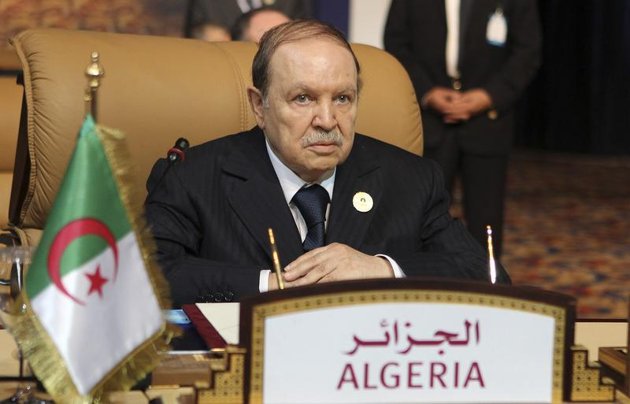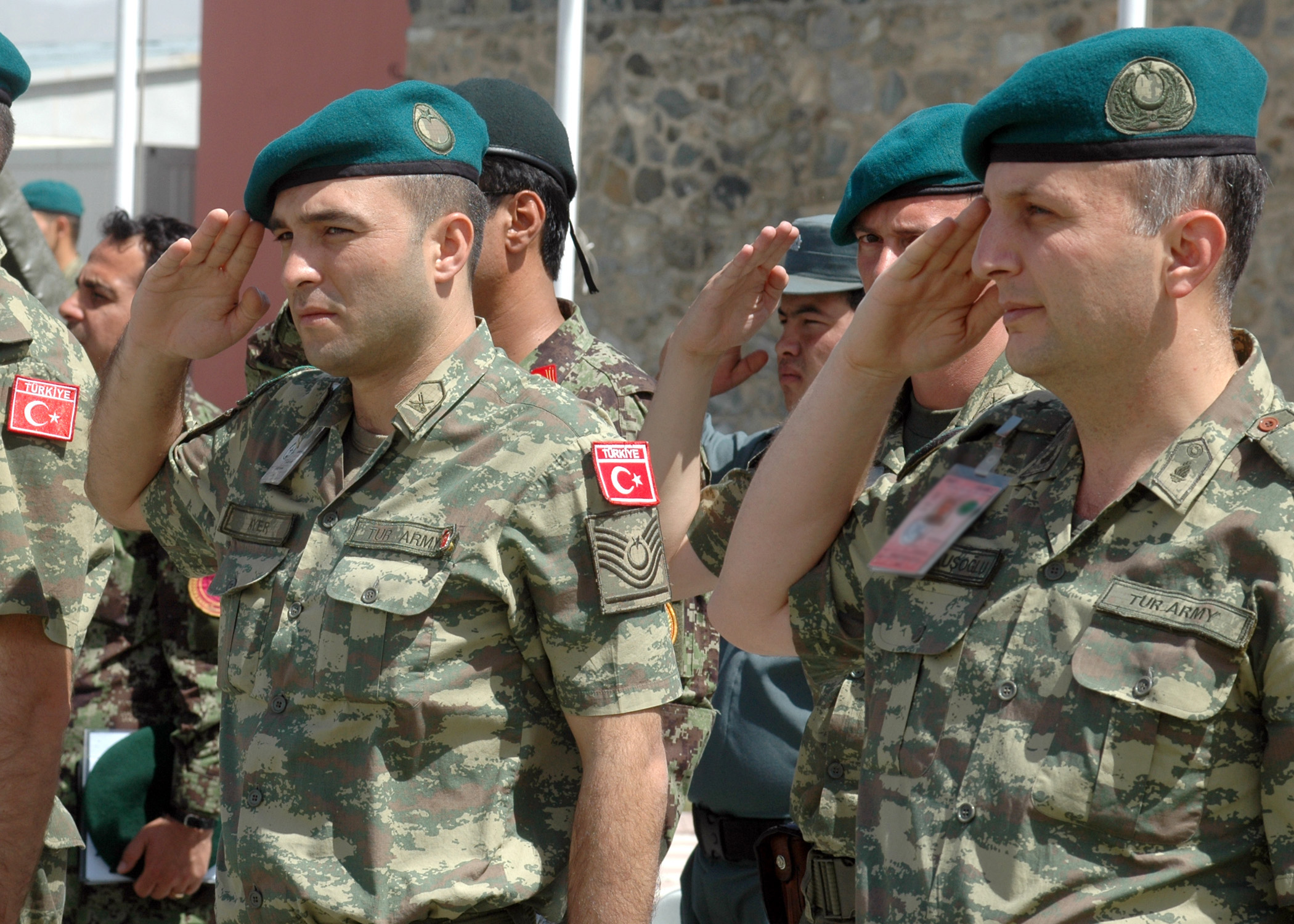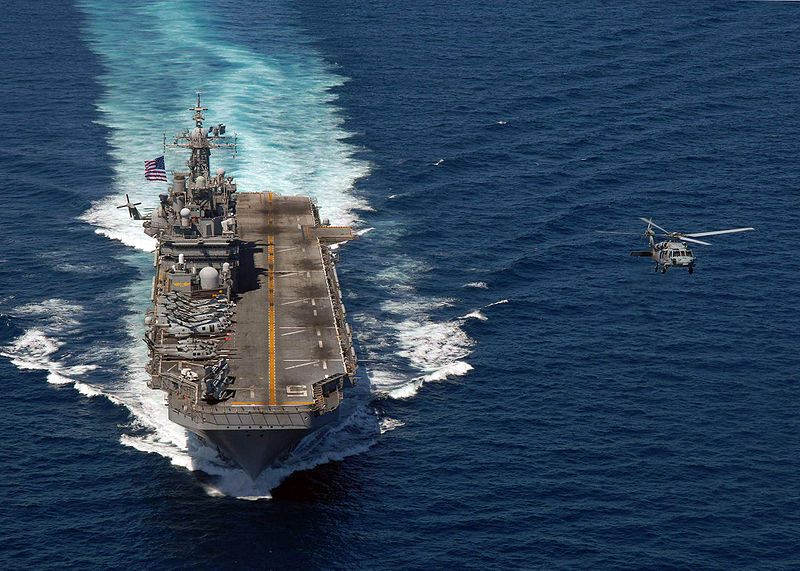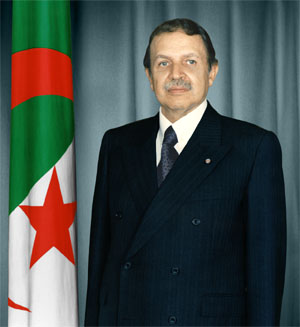
Algerian President Abdelaziz Bouteflika, who has ruled the country for 15 years, has decided to run for a fourth term in the upcoming April vote. Despite suffering a stroke last year, the 76 year old seems adamant to continue his presidency, leaving questions of Algerian political stability unanswered. Bouteflika’s re-election is ensured, as he has the support of the ruling National Liberation Front (FLN), which has cemented its grip on the Algerian political sphere since leading the independence struggle against France in 1962. Bouteflika is also seen as the man who delivered peace and stability to Algeria after a brutal civil war in the 1990s.
In light of his re-election decision and the continuous political turbulence in the region, it is worth considering the Algerian situation. Unlike its other North African counterparts (Egypt, Tunisia, and Libya), Algeria’s status quo has remained in tact. What makes this North African country different? Why did Algeria’s brief wave of protests in 2011 wither away? And why is it the only Arab republic that remained unaffected by the phenomenon that is the Arab Spring?
Reason One: The Civil War
In January 1992, the Islamic Salvation Front (FIS) was denied an electoral win by the Algerian army, who overthrew President Chadli Benjadid. This generated a wave of violence and counter-violence between the Algerian security forces and Islamist guerilla groups, causing the country to descend into a bloody civil war. The 1990s became known as the “Red Years,” with 200,000 casualties in the decade-long confrontation. When Bouteflika came to power in 1999, he was, and still is, seen as the man who brought Algeria stability. With this in mind, the Algerian public “has no appetite for confrontation,” as it is still recovering from the brutality of civil strife.
When the Libyan “spring” turned civil war emerged next door, the Algerian regime refused to recognize the National Transitional Council (NTC), supported the Gaddafi regime, and even criticized NATO’s intervention. Given the level of violence that occurred in Libya and Syria, the Algerian regime does not want these countries to set a particular precedent for Arab republics post-Arab spring. This explains their stance on the Syrian conflict, as Algeria has been cooperating with Iran to support the Assad regime, and went against the Arab League’s decision to suspend Syria’s membership. Thus, the regime has utilized the traumatic memories of the Algerian civil war to quell any from of rebellion.
Reason Two: Fear of the Unknown and Lack of Opposition
Algerians are wary of the unknown consequences of the Arab uprisings, and the regime is using its neighbors’ political turbulence in post-Arab spring countries to exasperate this skepticism. The political assassinations in Tunisia, the mismanaged army-led transition and disastrous presidency of Morsi in Egypt, and the full-fledged wars in Libya and Syria have also further exacerbated the fear of chaos and insecurity among the Algerian public. Moreover, many Algerians see no viable alternative to the ruling FLN. While many do not agree with the policies of the FLN, many believe that all other political parties, including the Islamists, are inexperienced, and thus, unfit to govern Algeria. In May 2012, Algerian Prime Minister Ahmed Ouyahia stressed that the country does not “need lessons from abroad” and that the Arab Spring was a “disaster,” which demonstrates the regime’s position regarding popular mobilization.
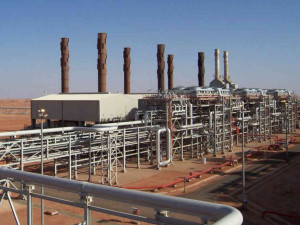
At a regional and international level, instability in Algeria would mean instability in the Maghreb and Sahel, which would strengthen the presence of Al-Qaeda in the Islamic Maghreb (AQIM). This type of instability is exemplified by the Islamist insurgency that required French intervention in Mali and the hostage crisis of the In Amenas oil and gas facility, which left 85 people dead in 2013. Battling AQIM has made Algeria a reliable counter-terrorism partner to the West, while aiding in the regime’s legitimacy at home.
Reason Three: Abundance in Natural Resources
The Algerian government has used its energy revenues to curb public disenfranchisement and buy domestic support. Algeria is the world’s sixth-largest producer of natural gas and supplies Europe with almost a fifth of its gas imports. In addition to raising subsidies on basic commodities and relaxing street vendor regulations, public-sector workers have enjoyed pay raises, while loans for business start-ups and unemployed youth have increased. These measures illustrate the regime’s general policy of keeping the youth away from protests. In addition, the West has been keen to keep Algeria, a reliable energy supplier, stable for economic, geostrategic, and security reasons.
Uncertain Future
Even though Algeria’s bloody history and abundance of natural resources keeps the status quo afloat, it is vital to understand that it is not immune to public grievances and potential mobilization. Protests broke out on March 6th against Bouteflika’s fourth term candidacy, leading to the detention of 40 people. Despite lifting emergency law in 2011, public demonstrations remain banned in Algeria. Limits such as this on political freedom, compiled with Bouteflika’s ailing health, make Algeria’s political future uncertain.

